
Sustainability Series: The five pillars of sustainable egg farming
By Egg Farmers of CanadaEgg Farmers of Canada’s inaugural Sustainability Report outlines the sustainable growth of the egg industry, and our approach to stewarding Canada’s agricultural future. In the first article of a three-part Sustainability Series, we look at the five pillars that are at the core of sustainable egg farming in Canada.
Creating the first-ever Sustainability Report for the Canadian egg industry required collaboration from across our sector, including the more than 1,200 egg farmers and farm families who live and breathe sustainability every day. As Roger Pelissero, Chair of Egg Farmers of Canada, points out in the report, “What unites us is a common vision to do our part to better ourselves and our practices, to push harder to lead the way to a sustainable future, and to work collaboratively to get there.”
Organized around five pillars, the report outlines this common vision and details how egg farmers across Canada invest in and implement sustainable agricultural practices. Keep reading to learn about each pillar, the impact of our collective efforts so far and to discover where the Canadian egg industry is heading.
Pillar 1: Protecting the health and welfare of hens
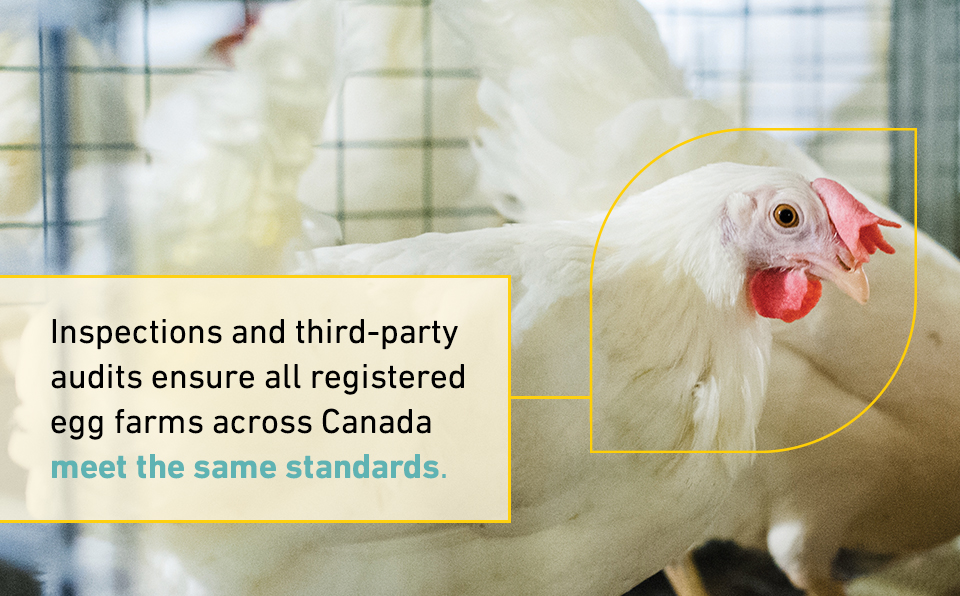
We believe in the highest standards in animal care—a responsibility that is at the core of everything egg farmers do.
All registered Canadian egg farmers take part in our national Animal Care Program. This comprehensive program covers areas such as housing, husbandry practices, handling and barn conditions, and includes regular on-farm inspections and third-party audits. Based on the Code of Practice for the care and handling of pullets, layers and spent fowl, the program reflects world-class standards in animal care and incorporates the expertise of scientists, veterinarians, government and industry representatives.
The Animal Care Program is regularly reviewed to ensure it reflects the latest science, animal welfare knowledge and new technology. It is also strengthened by our comprehensive research program—an evidence-based program that promotes continuous improvement of on-farm practices in animal welfare and care.
As we look to the future, the Animal Care Program is actively being redeveloped to include new requirements from its Code of Practice. Implementing these new standards is already underway, with an anticipated launch in 2022.
Pillar 2: Delivering safe, high-quality eggs to Canadians
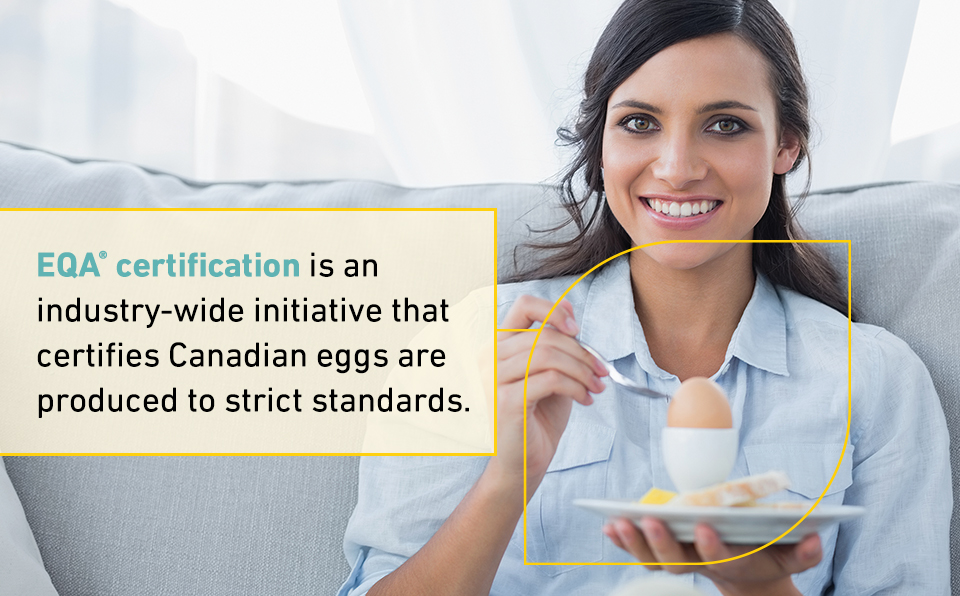
Canadians trust egg farmers to deliver safe, healthy, high-quality and nutritious eggs.
Thanks to the Egg Quality Assurance™ (EQA®) mark on egg cartons and restaurant menus, it’s easy for Canadians to recognize that their eggs have been produced according to world-class food safety and animal welfare standards. The EQA® certification program is an industry-wide initiative that helps Canadians identify top-quality, made-in-Canada eggs, which have met the requirements of the Start Clean-Stay Clean® and Animal Care Program.
The Start Clean-Stay Clean® program is a national on-farm food safety program followed by all registered Canadian egg farmers. It was developed with input from leading food safety experts, regulators and farmers, and reflects the latest scientific information and best practices. This nationally accepted approach aims to prevent, reduce and eliminate food safety hazards.
Moving forward, we will continue to strengthen the Start Clean-Stay Clean® program by aligning it with the latest scientific information, technical advancements, government regulations and best practices through a semi-annual review process.
Pillar 3: Finding new ways to make egg production more sustainable
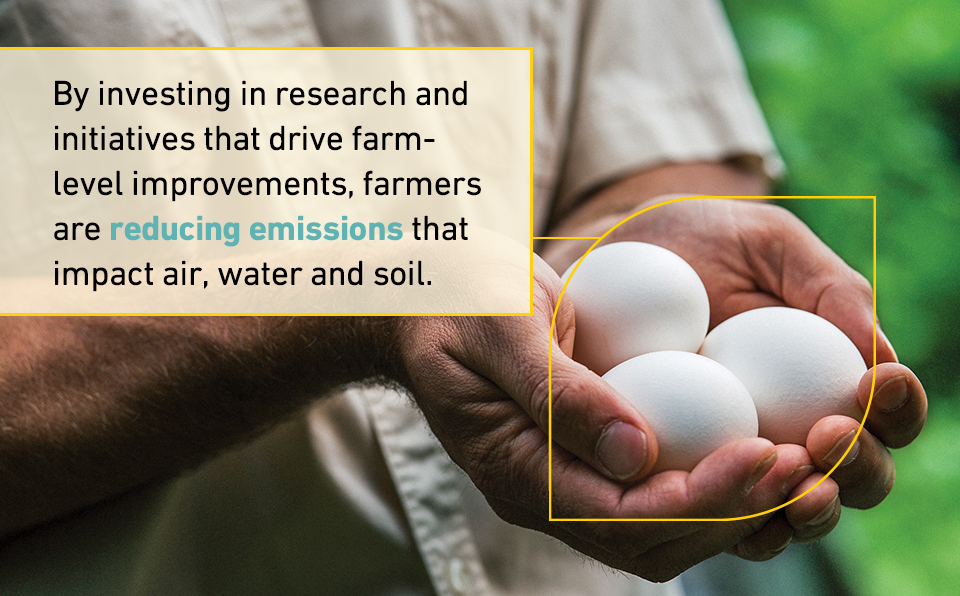
Egg farmers are leaders in sustainable agriculture. In fact, eggs have the lowest environmental impact of any animal protein1. Over the last 50 years, Canadian egg farmers have reduced energy usage, water consumption and land footprints by as much as 81% with life cycle thinking and the rigorous analysis of on-farm practices.
Egg farming in Canada is on the cutting-edge of farming technology, employing precision agriculture techniques, green energy sources and predictive analytics to allow for more efficient operations. By reducing the sector’s environmental impact and continuously improving our performance, we are creating a proud legacy for future generations of farmers and Canadians.
Pillar 4: Enhancing the well-being of others
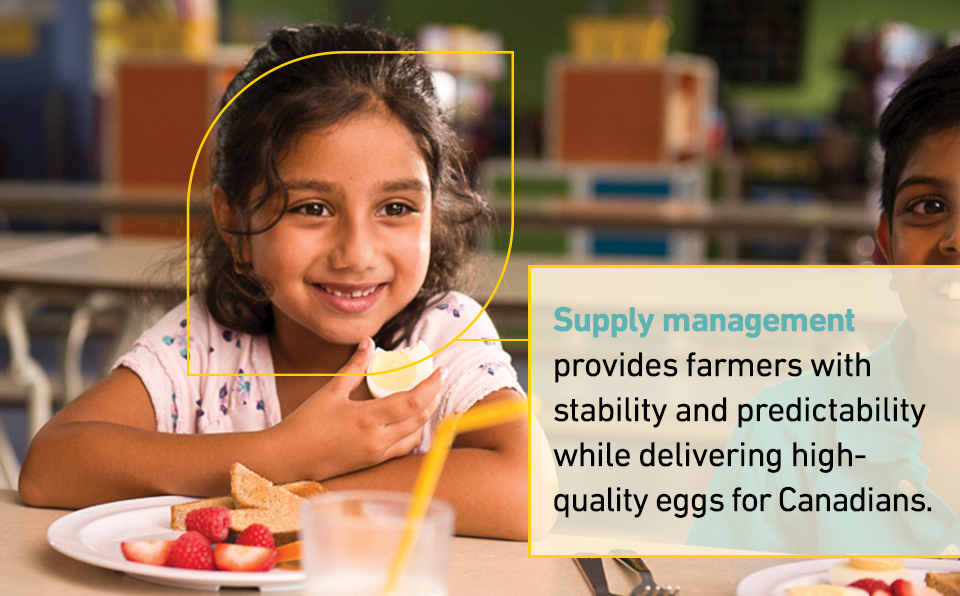
Advocating for farmers, meeting consumer demand for local food and engaging in partnerships to reduce hunger are the heart of the fourth pillar.
The system of supply management is an important part of our sustainability story. It brings economic stability to rural regions, ensures egg farmers receive fair wages and provides a sound foundation for dependable egg production. For Canadians, this results in reliable access to the fresh, local, high-quality eggs that they trust and enjoy. Supply management counts on open communication between stakeholders to facilitate the sharing of expertise. These groups include farmers, the Canadian government, non-government organizations and industry partners.
Benefits of this industry-wide collaboration mean egg farmers can support groups like Food Banks of Canada, the Breakfast Club of Canada and charitable initiatives like Heart for Africa (Canada), that work to ensure vulnerable populations have access to the exceptional nutritional benefits of eggs. These relationships are essential in helping us meet our current and future sustainability ambitions and to grow our sector responsibly.
Pillar 5: Empowering our people
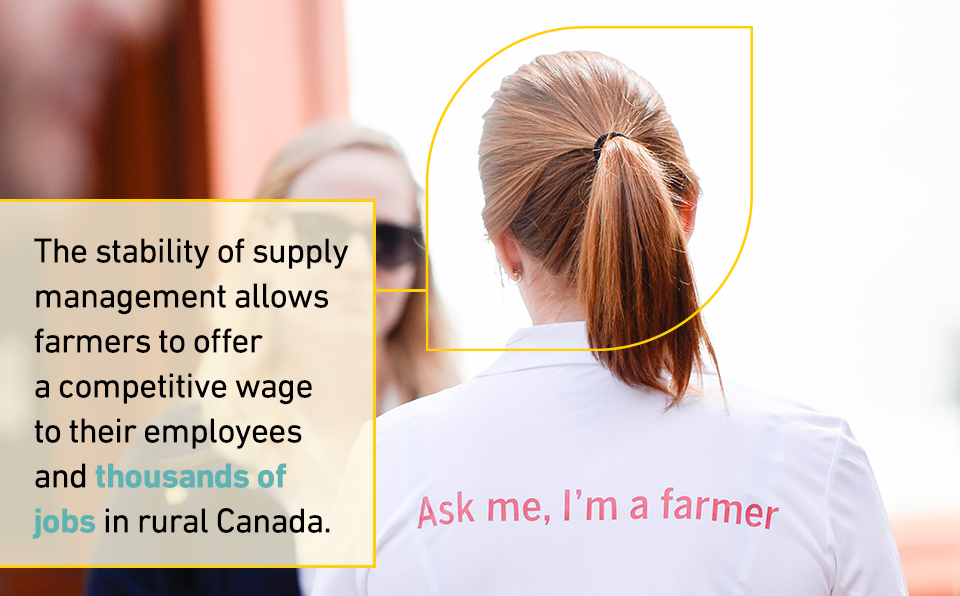
With a total economic impact of $1.37 billion and supporting over 18,500 jobs, the Canadian egg industry is strong because of the people behind it. By empowering farmers to address labour gaps, ensure fair wages and offer a safe work environment, we are securing the long-term sustainability of the industry.
Our national young farmer program and women in the egg industry program are nurturing the next generation of leaders. These initiatives offer opportunities for mentorship, knowledge building and leadership development, and provide a platform to share best practices with egg farmers from across Canada.
The inaugural Sustainability Report provides a holistic overview of noteworthy successes and challenges in our pursuit to farm a sustainable future for Canada’s egg industry. In the second part of our Sustainability Series, we will take a closer look at the way egg farmers use innovative practices to improve environmental on-farm performance.
Click here to read the Sustainability Report to discover how Canadian egg farmers are contributing to a sustainable future.
1 Egg Farmers of Canada Sustainability Report, November 2019